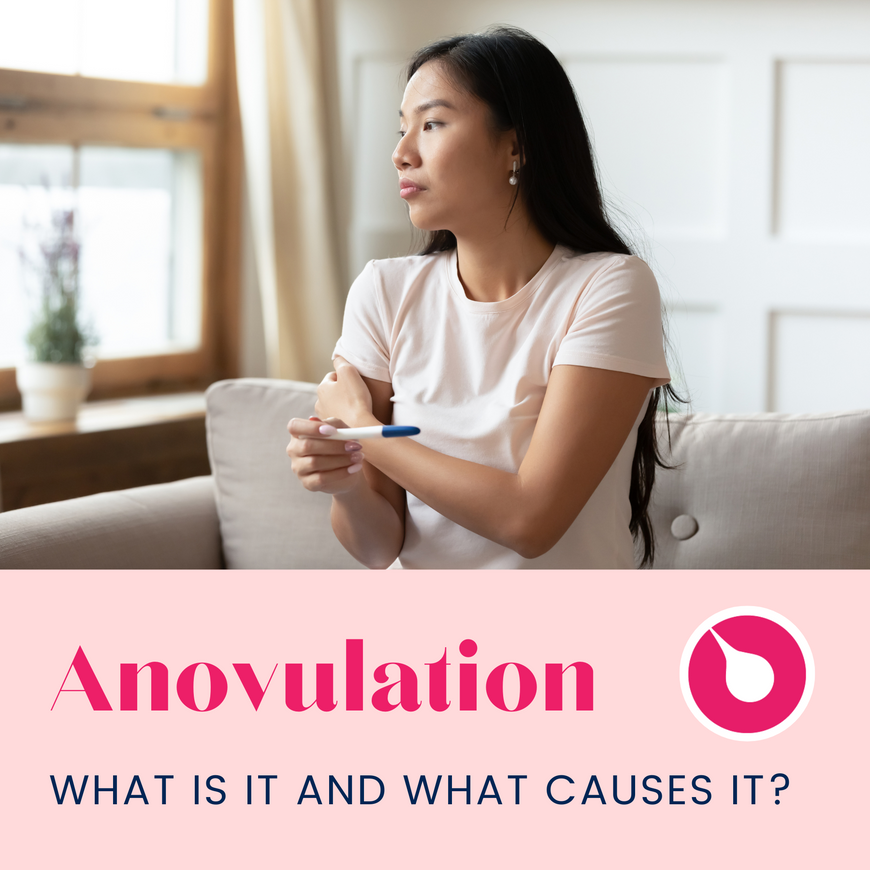Did you know that ovulation, not menstruation, is the main event of the cycle? Ovulation is incredibly important for more than just conception. Ovulation is important for the production of beneficial hormones, which are crucial in many functions of the body. But what happens when we don’t ovulate? Read on to find out.
A tour of the menstrual cycle
In a regular cycle, hormones will rise and fall as you experience the release of an egg at ovulation. Here’s how it all goes down:

- As your cycle progresses, hormone levels rise as the developing follicle, or egg, matures.
- At ovulation, estrogen levels reach their peak as luteinizing hormone facilitates the release of the egg.
- After ovulation, progesterone becomes the dominant hormone. Progesterone is produced by the “leftover” of the egg, called the corpus luteum.
- Once ovulation has occurred, one of two things will happen: either you will conceive, or you will menstruate about 11-16 days later.
I just threw a lot of words at you - some of which you may know, and others of which may be completely new to you. Since we're going to continue talking about a number of these, here's a little help to know your terms:
- Estrogen: the dominant hormone before and during ovulation.
- Progesterone: the dominant hormone after ovulation and during pregnancy.
- Follicular Stimulating Hormone (FSH): facilitates the growth of the follicle.
- Luteinizing Hormone (LH): triggers the release of the egg at ovulation.
- Follicular phase: the first half of the cycle, starting with menstruation and going up to ovulation.
- Luteal phase: the second half of the cycle, between ovulation and your next menstrual bleed.
When life happens
No cycle is perfect, and sometimes hormone levels won’t be sufficient to trigger the development and/or release of the egg. Perhaps you are in a stressful season of life (getting married, moving, starting a new job, etc.), and you start getting worried because your period is late. What’s going on? Stress is delaying ovulation, resulting in a lengthened follicular phase. This, in turn, lengthens your entire cycle. You are not actually experiencing a late period. In fact, you are experiencing delayed ovulation.

Here are some reasons why ovulation may be delayed:
- Stress (illness, travel, visitors, new job, moving, wedding)
- Post-hormonal birth control
- Postpartum/breastfeeding
- Perimenopause
- Hormone imbalance (like PCOS)
When ovulation is delayed, the follicular phase (the time between menstruation and ovulation) will be long and drawn out. If you’re using a symptothermal method of fertility awareness, you will observe periods of cervical mucus but no sustained temperature rise indicating ovulation has taken place. This is how you’ll know if ovulation is delayed.
In long cycles, ovulation may eventually happen, just taking a little longer than usual. If this occurs, you’ll have one of the two scenarios I just mentioned: you’ll conceive or you’ll have a menstrual bleed.
Sometimes, ovulation just doesn’t happen in a cycle and you will have what’s called a withdrawal bleed. This type of bleed may look and seem exactly like your regular menstrual bleed - but hormonally it is different. A withdrawal bleed is not preceded by ovulation, whereas menstruation is. The hormonal profile of a withdrawal bleed is rising estrogen that builds the uterine lining. If ovulation does not occur and estrogen drops, this withdrawal of estrogen causes the uterine lining to shed.
Knowing what kind of bleed you are experiencing is one benefit of charting with fertility awareness. Charting gives you an added layer of information that gives you insights into your health. If you aren’t charting, a withdrawal bleed could look exactly like menstruation, and you may assume that you ovulated. However, with your charting data you would know better.
When is it cause for concern?
You might experience an anovulatory bleed once a year or so for no obvious reason. This is normal and not a cause for concern. There are also life stages where irregular cycles are to be expected, and hormone levels will become more balanced out over time. In the work I do with my clients as a fertility awareness educator, I often see some anovulatory cycles after coming off hormonal birth control or during postpartum. These are expected periods of hormone rebalance.

However, if you’re frequently not ovulating or you regularly experience cycles over 36 days or cycles shorter than 23 days, and you aren’t in a life stage where this is to be expected, you may want to investigate the root cause of what is going on with your cycles. You can start by charting your cycle, tracking how often you are ovulating and monitoring the length of your cycles. Backed up with your own personal health data, you are much more informed when you seek support from your care provider.


Nathalie Daudet is a social worker and FEMM instructor based in Winnipeg, Canada. She discovered fertility awareness after searching high and low for a non-hormonal method of birth control. After learning the magic of fertility awareness and the gift of body literacy, she decided to pursue formal fertility awareness training and share the knowledge of fertility awareness with women looking for a natural birth control option. Fertility Awareness Project is the hub for Nathalie’s FEMM classes in both group and individual formats, online and in person in Winnipeg. If you love this post and would like to thank Nathalie, shop Tempdrop with Nathalie's unique referral link.
